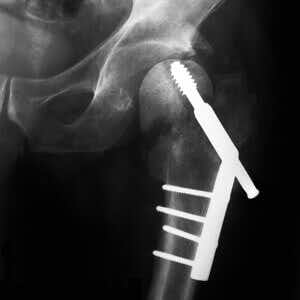
Antidepressants are among the most popular pills in the drugstore. A research letter in JAMA Internal Medicine (Dec. 12, 2016) noted that one in six adults take psychiatric drugs. Antidepressant medications make up the largest number of those pills (12 percent). The authors point out that “Among adults reporting taking psychiatric drugs, more than 8 of 10 reported long-term use.” Older people and women are the most likely to be taking such medications. In a moment you will discover why that is a potential problem
When fluoxetine (Prozac), paroxetine (Paxil) and sertraline (Zoloft) were first introduced, most people believed there were few side effects. No one ever imagined something as serious as hip fractures. It wasn’t even on the radar screen. But in recent years there have been some disturbing reports that antidepressants can increase the risk of fractures in general and broken hips in particular.
The Latest Research on Antidepressant Medications:
A Finnish study of more than 50,000 people with Alzheimer’s disease and 100,000 without dementia found a two to three fold higher risk for hip fracture during antidepressant use compared to nonuse (International Journal of Geriatric Psychiatry, Jan. 5, 2017). The authors note that:
“Antidepressants are widely used among older persons and especially among persons with Alzheimer’s disease (AD)…
“use of antidepressants is associated with adverse drug events among older persons. Most severe events are gastrointestinal bleedings, stroke and hyponatremia [very low sodium levels]. Antidepressant use has also been associated with an increased risk of injurious falls, leading to fractures…
“We found two-three times higher risk for hip fracture during antidepressant use compared with non-use among older persons. Our findings are consistent with previous studies on the association between antidepressant use and an increased risk of hip fracture conducted in general aged population, pointing out two times higher risk for hip fracture associated with antidepressant use compared with nonuse.”
The authors warn that if older people must take antidepressant medications, they should be carefully monitored to prevent falls
Prior Research Linking Antidepressant Medications to Fractures:
This is not the first time antidepressants have been associated with a greater chance of falls and fractures. Some critics might suggest that people who are depressed are vulnerable to falls whether they are taking antidepressants or not. A study published in the journal Injury Prevention (online, June 2015) suggests otherwise. This study involved 137,000 women who were not depressed. It demonstrated a link between drugs like citalopram (Celexa), escitalopram (Lexapro), fluoxetine (Prozac) and sertraline (Zoloft) and fractures. The women were taking these medications for hot flashes, not depression.
How Do Antidepressant Medications Cause Fractures?
Most health professionals would probably assume that antidepressant medications cause sedation, dizziness, irregular heart rhythms, low sodium levels or confusion. Such side effects are recognized as adverse drug reactions induced by this class of medications. When someone is dizzy, unsteady on her feet or confused, falls and fractures are a distinct risk. But there is another possibility. Most of these antidepressants are known as SSRIs (selective serotonin reuptake inhibitors). That means they affect the brain chemical called serotonin.
What many people may not realize is that serotonin is found throughout the body. There are serotonin receptors on specialized bone cells called osteoblasts and osteocytes. In other words, serotonin plays a critical role in bone health. What researchers do not yet know, however, is whether SSRI-type antidepressants adversely affect bone structure and increase the risk of osteoporosis (Current Osteoporosis Reports, Oct., 2016). This just demonstrates that it can take decades before adverse drug effects are discovered and the mechanism worked out.
NEVER Stop Antidepressant Medications Suddenly!
When people stop drugs such as citalopram, duloxetine or sertraline suddenly they can experience horrible withdrawal symptoms.
Here is one story from Karlyn in Florida:
“I was put on Celexa after treatment for breast cancer for hot flashes. I was eventually placed on Zoloft because it was said to be easier to stop taking. However, it has been 14 years, and I have been unable to withdraw from the medication. I tried for 10 months (after coming off the drug gradually and receiving acupuncture) and was sick every day, all day for those 10 months. I finally started taking the drug again with complete relief. Now, I am stuck taking Zoloft. I have never been depressed except during that 10 months almost five years ago. I am an SSRI drug ‘addict’ and CANNOT do without it. All for hot flashes which I no longer suffer from at all.”
Any older woman who has been taking an antidepressant medication should ask her physician whether it would be appropriate to be checked for osteoporosis. In addition, steps should be taken to make the house or apartment less dangerous. Anything that represents a trip hazard should be immediately fixed. Hand holds and other safety devices should be installed. A hip fracture can be devastating and we want to make sure that People’s Pharmacy visitors are protected now that we know this class of medication represents a substantial risk, especially for older people.

